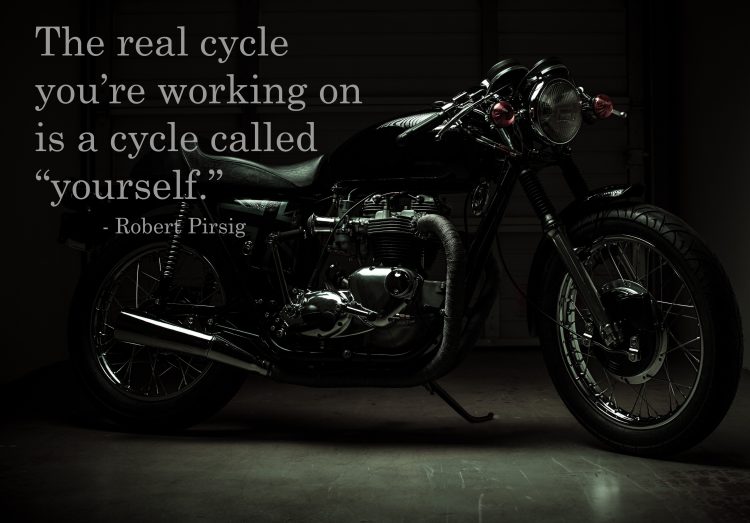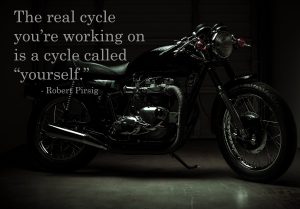As some of you guessed from my last post, I’ve been a little stressed out. But lucky for me, I have some motorcycle maintenance to do.
Motorcycling, for me, has always been a contemplative practice. The required focus to successfully navigate a powerful machine through a hostile environment at speed frees you from all other thoughts. Beyond riding, maintaining a motorcycle well provides contemplative time. There’s a level of focus required, particularly maintaining a bike to a level of craftsmanship that should be targeted.
What is required for both the contemplative practice and the craftsmanship required to be truly successful? This is what I need:
- Silence – I can’t concentrate on the task at hand, nor gain that contemplative mood that allows me to perform as a craftsman, with noise. There’s no radio in my garage. Noise is the enemy of thought.
- Time – I have a short list of tasks I need to do to the motorcycle, none of which should take more than an hour or so. I have two full weeks to accomplish them, and four evenings of that two weeks I’m at home alone. A sense of urgency destroys craft and contemplation.
- Care – Nobody cares more for your motorcycle than you. The professional mechanic may come at it with more knowledge of how the systems work, but we’ve all seen professionals fail to accomplish their mission for lack of care. Pirsig identifies this in one part of Zen and the Art of Motorcycle Maintenance as being uninvolved – a spectator to your own actions. The motorcycle, to me, requires more involvement than another machine. My mistake may not only destroy the machine, but quite possibly result in serious injury to myself. Care is also one of the fundaments of craft.
- Understanding – You need to understand why you’re doing what you’re doing. The depth of that understanding leads to exploration of the desired result in your mind. Is it worth it? Of course, with many basic maintenance tasks the continued operation of the machine is the “why.” Modifications are different. You approach a modification with a result in mind. You may think of the result as the change to the machine, but the real result should be a change to your experience. For example, I’m rejetting the carburetor in my dirtbike. The change to the machine will be a little more horsepower and torque at mid-throttle, but the real result should be better riding because the motorcycle responds to my inputs more favorably.
With those four things, both successful motorcycle maintenance and contemplative practice results.

